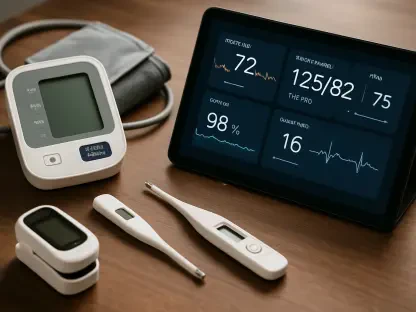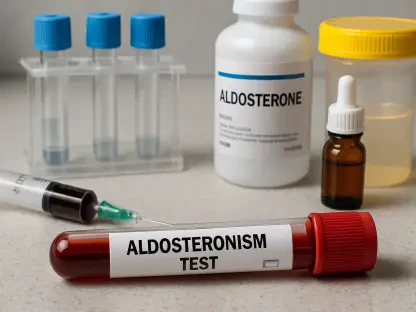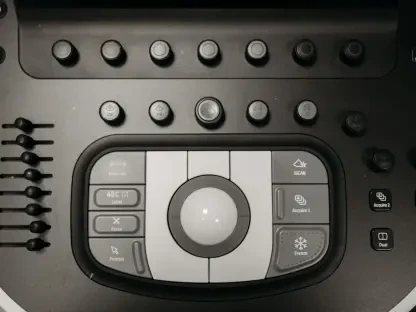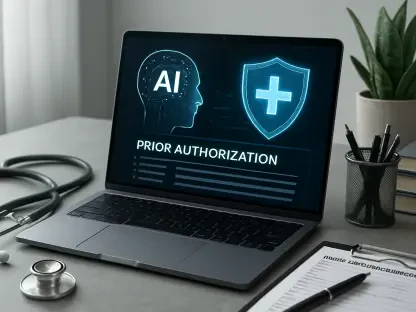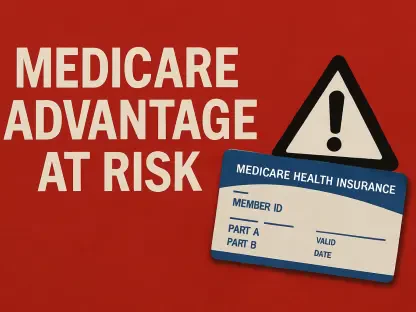Healthcare providers today are increasingly implementing automation to enhance patient engagement and operational efficiency. The healthcare landscape is shaped by consumer expectations for rapid digital responses—a necessity that presents both challenges and opportunities for medical practices. In this context, automation has emerged as a powerful tool to meet modern demands, ensuring that organizations can improve patient experiences and successfully acquire new patients. Among those bringing innovation to this domain is DAS Consultants, which has crafted AI-powered solutions to streamline patient outreach and management. Their advancements signify a transformative change in how healthcare providers interact with and retain patients in an era ripe with competition.
The Rise of Digital Expectations in Healthcare
Digital Savvy Patients
Today’s patients are more technologically inclined than ever before, expecting swift and efficient digital interaction when engaging with healthcare providers. Whether through phone calls, text messages, or live chat on websites, patients demand quick responses. This digital expectation is not merely a preference but a critical aspect of patient service standards in the current healthcare market. Failure to meet these expectations can result in patient attrition, with individuals quick to switch to competitors who offer more responsive communication options. Consequently, healthcare providers are under constant pressure to adapt their systems and processes to maintain their competitive edge and ensure patient satisfaction.
The digital era has ushered in a new breed of commercially minded patients who value their time and expect a seamless user experience. This trend has prompted healthcare providers to harness automation technologies effectively. Automation ensures continuous engagement, personalized follow-up, and consistent interaction—all without the heavy burden of manual input. Such automated systems are tuned to recognize patient needs promptly, offering tailored communication strategies that nurture potential leads into committed patients. Through the adoption of such technologies, healthcare practices can cater to modern patients’ demands, thereby enhancing service delivery and bolstering patient loyalty across diverse demographics.
Competitive Pressure
In an environment where healthcare competition intensifies daily, practices are at risk of losing potential new leads to competitors if they do not respond promptly and efficiently. Research illustrates that many patients tend to favor the first responders when seeking healthcare services. This reality places a premium on having fast and effective communication systems in place to capture and convert leads in real-time. Practices that fail to recognize and address this requirement risk substantial declines in patient acquisition and potential revenue. Automation, therefore, is not just advantageous but essential, allowing practices to keep pace with competitors who prioritize speed and efficiency.
Efficient automation systems enable healthcare providers to instantly capture and address patient queries, delivering a competitive edge in patient outreach. Providers employing these systems have reported significant improvements in patient communications and satisfaction, marking a critical factor in their overall success. By minimizing response times and refining the initial patient interaction process, such systems prevent potential losses and ensure that practices remain at the forefront of healthcare interactions. Additionally, by integrating AI-driven solutions, practices can augment their service offerings, positioning themselves as leaders in a marketplace increasingly dominated by technological proficiency.
Addressing Lead Drop-offs and No-Show Rates
Financial Implications
Patient no-shows and lead drop-offs place substantial financial burdens on healthcare practices. No-show rates can reportedly reach as high as 30%, translating to significant potential revenue loss and operational inefficiencies. This persistent issue underscores the need for practices to reassess their strategies to mitigate such losses. Without addressing these challenges, healthcare providers risk not only forfeiting immediate revenue but also damaging long-term patient relationships and credibility. The implications extend beyond dollars and cents, impacting the practice’s reputation and its ability to grow in a competitive industry landscape.
Mitigating no-shows and lead drop-offs calls for comprehensive strategies that leverage advanced technology. Automation offers a solution, allowing healthcare providers to focus on consistent and proactive patient engagement. Automated systems remind patients of appointments, reducing the likelihood of no-shows by alerting them well in advance and providing easy rescheduling options. By doing so, practices can safeguard their schedule integrity, optimize resource allocation, and maximize their financial returns. Such systems ultimately enhance the operational workflow of healthcare practices, ensuring sustainability and efficiency in managing patient interactions.
Automation as a Solution
Addressing the persistent issues of lead drop-offs and no-show rates hinges on embracing automation. Automated systems ensure consistent and efficient lead management by capturing, nurturing, and converting potential leads into confirmed appointments. These systems operate seamlessly in the background, conducting routine follow-ups and confirmations which drastically reduce manual intervention and optimize the conversion funnel. By utilizing automation, healthcare practices can streamline their operations, focusing their personnel’s efforts on patient care rather than administrative tasks, thus enhancing the overall quality of service and patient satisfaction.
The consistency and precision provided by automated systems empower healthcare practices to prevent revenue loss typically associated with lead drop-offs and patient no-shows. With the ability to send timely reminders and follow-up communications, these systems bolster patient engagement, ensuring that client interactions remain continuous and productive. This targeted approach ultimately translates into improved operational efficiency, allowing clinics and hospitals to concentrate on delivering quality healthcare services. By adopting such technological solutions, healthcare providers not only protect their financial stability but also reinforce their commitment to outstanding patient care.
Components of an Effective Automated Outreach System
Key Features
A highly functional automated outreach system in the healthcare context should integrate features that allow for instant lead capture and facilitate streamlined communication. Key components of such systems include automated follow-up sequences, which maintain ongoing dialogue with patients through scheduled interactions, ensuring no lead goes unnoticed. Appointment confirmations and reminders are essential, as they reduce the risk of no-shows and guarantee a more predictable schedule. These systems should enable two-way communication, allowing patients to respond or provide additional information efficiently. Additionally, CRM integration is critical to maintaining comprehensive records that inform personalized patient engagement.
Automation tools equipped with these features can significantly enhance the patient acquisition process. By automating time-consuming administrative duties, healthcare practices can devote more resources to core patient care, improving the overall quality of service. Such automation does more than merely conserve time and effort; it transforms interactions from standard to strategic, fostering deeper connections with patients. As a result, these tools do not just handle the logistics of patient outreach—they humanize and personalize it, creating a patient-centric approach that aligns with the modern digital expectations of consumers.
Advantages of Automation Tools
The use of advanced automation tools in patient outreach provides numerous benefits that extend beyond mere efficiency gains. They streamline communication processes and enhance patient management by offering preemptive engagement strategies tailored to specific patient profiles and needs. Such tools are equipped with functionalities that enable practices to personalize interactions, ensuring patient communications are not only timely but also relevant. This proactive approach ensures patients feel valued and understood, fostering a level of trust and satisfaction that traditional manual systems often struggle to achieve.
Automation technologies also provide healthcare practices with valuable insights through analytics, enabling them to measure engagement metrics and continuously optimize outreach strategies. By leveraging data-driven approaches, practices can refine their methodologies, ensuring that each patient interaction is as impactful as possible. These analytical insights support strategic decision-making, helping practices adapt to evolving healthcare landscapes and patient expectations. Ultimately, automation tools empower healthcare providers to deliver not just a service but an experience, setting new benchmarks in patient care and engagement efficiency.
DAS Consultants’ AI Chat System
Instant Engagement
DAS Consultants have positioned themselves at the forefront of healthcare automation with their AI-powered chat system designed for instantaneous patient engagement. This system is engineered to capture and qualify leads as soon as potential patients interact with a practice’s website, ensuring no opportunity is lost due to delayed response times. The ability to engage instantly means the AI system can address inquiries, pre-screen, and direct leads towards scheduling an appointment, enhancing the chances of conversion while minimizing patient wait times. Such immediate interaction aligns perfectly with the expectations of modern patients seeking prompt and professional service.
The system’s real-time engagement capabilities not only boost patient satisfaction but also significantly enhance lead conversion rates. By swiftly qualifying potential patients, the AI chat system ensures that healthcare practices focus on genuine leads, optimizing resource allocation and maximizing their outreach efficacy. Furthermore, this adaptability facilitates a seamless transition for patients interested in advancing their healthcare journey, offering a user-friendly experience that differentiates practices in a competitive market. As a result, healthcare providers can nurture potential relationships through meaningful and strategically timed engagements, reinforcing the importance of timely and personalized communication in healthcare.
Automated Nurturing
DAS Consultants’ automated system doesn’t just stop at initial engagement; it continues to nurture leads through customized follow-ups designed to guide patients through the appointment booking process. These sequenced communications address common inquiries and provide educational resources, equipping patients with the information necessary to make informed healthcare decisions. Such an approach ensures patient concerns are continuously addressed, fostering a sense of connection and support throughout their interaction with the practice. Automation allows for regular, personalized touchpoints, helping maintain patient interest and elevating their likelihood of choosing to proceed with the practice.
The nurturing process provides a dual benefit: it enhances patient satisfaction while significantly lightening the load on administrative staff. By allowing the system to manage repetitive follow-ups, healthcare providers can allocate more human resources toward critical patient care, ultimately refining operational efficiencies. Additionally, the educational elements embedded within these automated interactions empower patients with knowledge, enhancing their trust and confidence in the practice’s capability. This balanced approach enables practices to build and sustain long-term relationships with patients, transforming leads into loyal patrons through a focus on responsive, informed care.
Enhancing Practice Competitiveness
Tangible Outcomes
Healthcare practices leveraging DAS Consultants’ AI-powered system report substantial improvements in key performance metrics, including patient acquisition rates and no-show reductions. The system’s proactive communication strategies ensure that potential leads are captured effectively and guided seamlessly toward conversion, increasing the number of appointments booked and reducing patient attrition rates. This boosts the overall operational output, allowing practices to streamline their workflows and enhance service delivery without compromising quality or efficiency. Furthermore, the automation of outreach tasks empowers healthcare teams to dedicate more time to direct patient care, strengthening practice-patient relationships.
Practices that implement such cutting-edge technologies report positive outcomes not just in terms of operational effectiveness, but also in long-term patient retention. By ensuring that patient needs are addressed with speed and precision, the AI system fosters deeper loyalty and satisfaction among clientele, enhancing the practice’s reputation within its community. This reputation is built on the foundation of consistently exceptional patient experiences, an aspect that is increasingly important in today’s competitive healthcare environment. As a result, practices can position themselves as leading providers, guided by an ethos of patient-first engagement and innovative service delivery.
Specialties Benefiting from Automation
Various specialties stand to gain profoundly from adopting DAS Consultants’ AI-driven solutions, particularly those requiring considerable patient interaction and communication. Fields such as cosmetic surgery, dental implants, and pain management—where detailed consultations are critical—benefit immensely from systems designed to streamline and personalize the patient journey. These specialties often encounter high patient inquiries and demands for personalized information, making automation a key component in addressing volume efficiently while maintaining high-quality interactions.
For such specialties, embracing an automated solution allows healthcare providers to meet specific patient expectations and clinical requirements without overwhelming their administrative capabilities. The AI-driven approach offers specialized content and communication strategies that resonate with patient audiences, fostering trust and understanding. This level of engagement assures patients that their healthcare needs are prioritized, encouraging them to remain with the practice for ongoing care. By harnessing automation tools designed with specialty needs in mind, healthcare providers can ensure patient satisfaction and loyalty while expanding their reach within targeted markets.
Choosing the Right Automation Partner
Evaluation Criteria
Selecting the right automation partner requires healthcare providers to assess key criteria that align with their operational goals and compliance requirements. Essential features to consider include HIPAA compliance, which protects patient data and ensures that the automation tools meet stringent regulatory standards. Real AI-powered interactions are another critical factor, ensuring that the automated system extends beyond basic functionalities to provide meaningful engagements with patients. Furthermore, seamless integration with existing systems is paramount, ensuring that the new technology harmonizes with established workflows without disrupting operational stability.
Evaluating potential partners also involves examining the scalability and flexibility of their solutions, ensuring that the automation tools can evolve alongside the practice’s growth and changing needs. Providers benefit from comprehensive systems that offer a full suite of features designed to handle diverse patient interactions efficiently. Additionally, robust customer support and training resources play a significant role in the decision-making process, guaranteeing that the practice’s staff can effectively leverage the new automation tools. By focusing on these key aspects, healthcare providers can make informed decisions that optimize patient outreach and engagement strategies.
Recommendation
Healthcare providers are increasingly adopting automation to improve patient engagement and operational efficiency. The current landscape demands swift digital responses from consumers, posing both a challenge and an opportunity for medical practices. Within this framework, automation has become essential to meet these demands, allowing organizations to enhance patient experiences and effectively acquire new patients. DAS Consultants is at the forefront of this innovation, developing AI-driven solutions aimed at optimizing patient outreach and management processes. Their efforts mark a significant shift in how healthcare providers interact with and retain patients in a fiercely competitive environment. These advancements not only streamline operations but also enable healthcare entities to focus on delivering quality care. As the sector evolves, automation will play a pivotal role in shaping the future of patient-provider interactions, catering to the digital expectations of today’s healthcare consumers, and ensuring that providers remain competitive and patient-focused.


